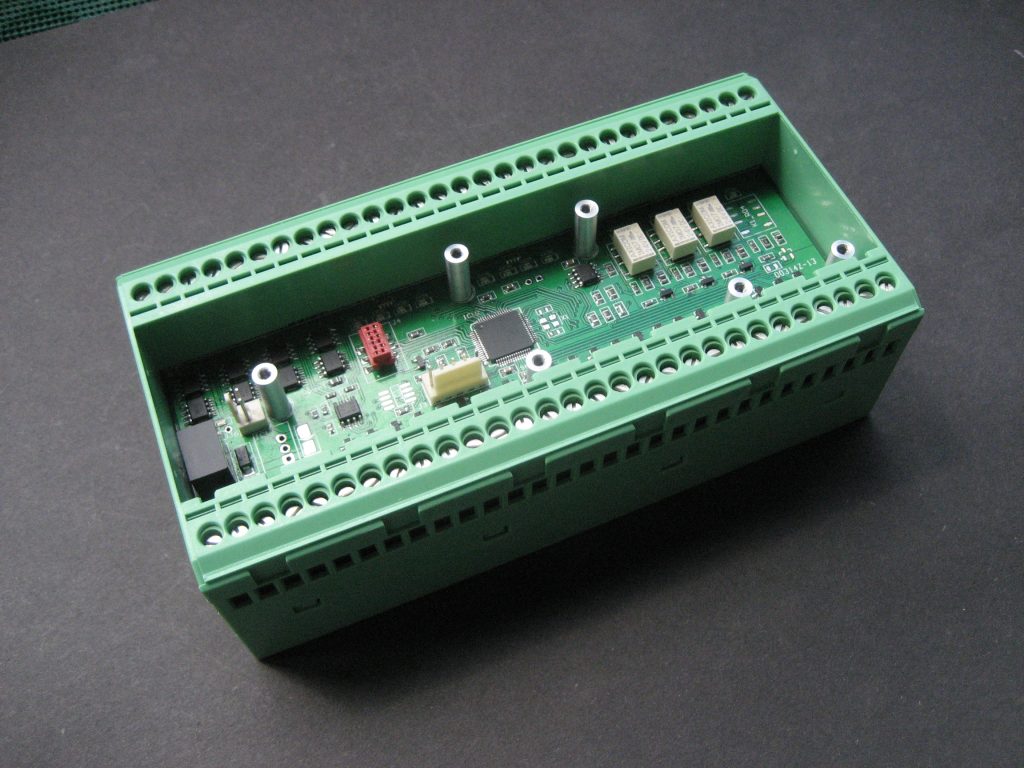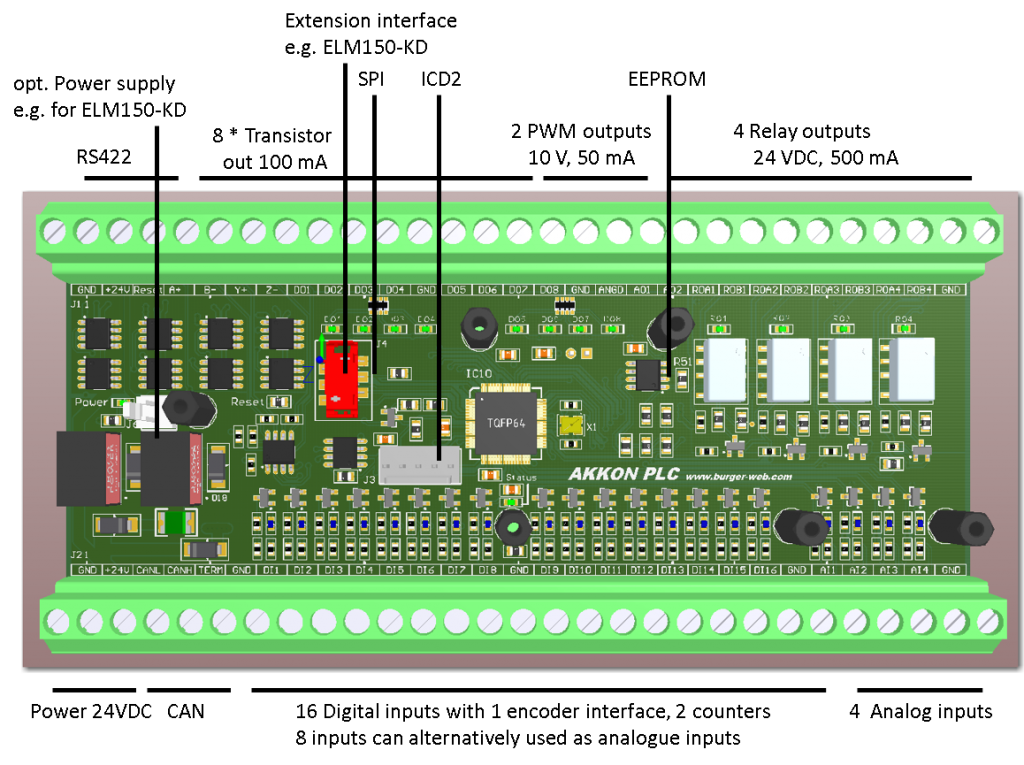The dsPicPLC is an electronic development and prototyping board based on Microchip dsPIC™ micro controller. The device is ready for interfacing a wide range of standard sensors and actuators and can also easily be extended with the EMG150-KD keyboard and display interface. Firmware updates and debugging can be done either using a suitable RS422 boot loader or ICD2/3 compatible debuggers resp. programmers. Depending on used connectors three variants of cases are available.

Functionality

1.1 Analog and digital Inputs
- 2 counter inputs
- 1 Encoder interface (A, B, Index, with digital output UpDown)
- 13 general purpose digital inputs, some work also as interrupt input
- 4 analog inputs (10 bit resolution); these inputs can alternatively be assembled for 4-20 mA sensors
All inputs are protected against over- and “under”-voltage. Encoder and analogue inputs can alternatively be used as digital inputs.
1.2 Outputs
- 8 digital transistor outputs (200 mA, 24 VDC per output), and short circuit protection
- 4 relays outputs driving 100 mA, 30 VDC
- 2 PWM outputs driving 100 mA, 10 VDC
All digital inputs and outputs equipped with status LED
1.3 Interfaces
- CAN
- RS422
- SPI
- ICD2 programming interface
1.4 Optional
- external EEPROM for user data
- external Real Time Clock
1.5 Power supply
- input supply 24 VDC, 2 A, operating voltage alternatively 3.3 V or 5.0 V (default). Minimum input voltage 7 VDC
- Remark: If relays are assembled, necessary input voltage also depends on the switching voltage of the relays
1.6 General
- dsPIC30F5015 micro controller
- electronic housing for DIN rail mounting available
- optional power supply on board for interfacing other devices that could be hooked on the AKKON PLC board
Weight without electronic housing: 70 g
Weight including electronic housing and AKKON Key Display: 300 g
Mounting holes for display or / and keyboard or others on board
1.7 Others
Mounting holes for display-keyboard-module
1.8 Optional assembling (by the user)
EEproms with 1 – 64 kB can be assembled
Some digital inputs can be used as analog inputs
